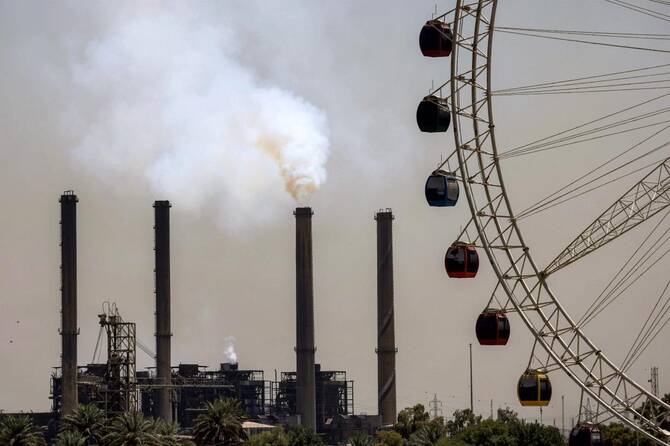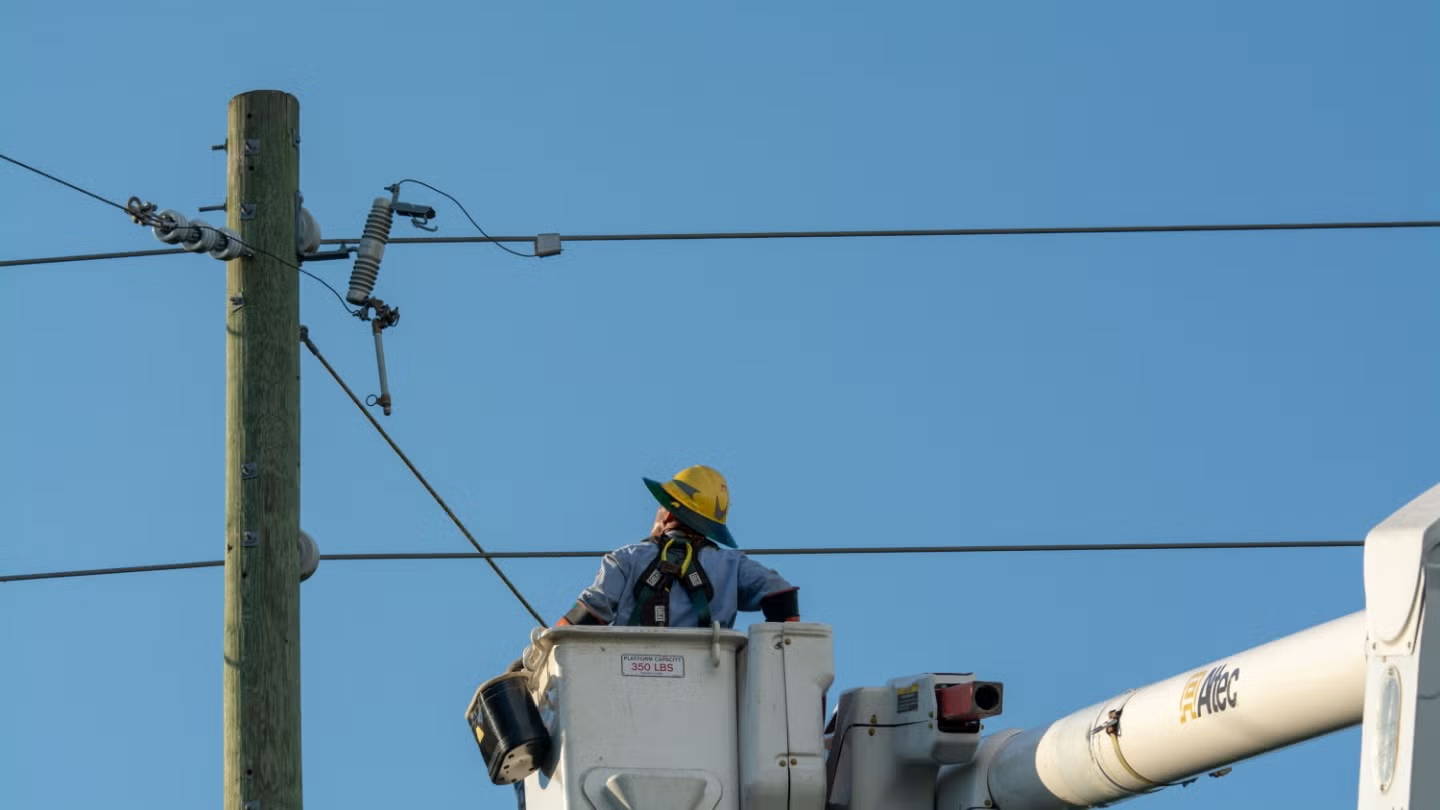Iraq Takes Bold Steps to Restore Electricity
Iraq has embarked on a major effort to restore power following one of the largest electricity outages in recent memory. For many citizens, the blackout disrupted daily life, affecting homes, businesses, and public services. The government’s rapid response has sent a powerful message: Iraq is determined to overcome its infrastructure challenges and bring stability to its citizens.
The scale of the outage was unprecedented, leaving millions without access to electricity. For families, this meant long hours in the heat or cold without basic amenities. Businesses suffered losses, schools struggled, and hospitals faced immense pressure. Despite these challenges, the resilience of the Iraqi people shone through. Communities came together to support one another, while local authorities worked tirelessly to restore essential services.
Coordinated Efforts by the Government
The Iraqi government mobilized teams across the country to address the crisis. Emergency repair crews were dispatched to critical areas, working day and night to reconnect power lines and fix damaged transformers. Officials emphasized the importance of coordinated action, highlighting the collaboration between national and local authorities, as well as support from private energy companies.
Government officials also engaged directly with citizens, providing regular updates and ensuring transparency in the restoration process. This approach not only reassured the public but also demonstrated a commitment to accountability and efficiency. The restoration of electricity became a shared goal for both authorities and communities, symbolizing unity and hope.
Overcoming Technical Challenges
Restoring electricity after such a massive outage is no small feat. The blackout was caused by a combination of factors, including aging infrastructure, high demand, and technical failures at major power stations. Engineers faced the difficult task of identifying weak points, repairing damaged equipment, and implementing immediate solutions to prevent further disruptions.
Advanced monitoring systems were brought online to track electricity flow in real-time. This allowed technicians to respond quickly to any new issues and manage the restoration process effectively. In addition, contingency measures such as backup generators and temporary supply lines were deployed to ensure that critical services, including hospitals and emergency response centers, remained operational throughout the outage.

Positive Impact on Daily Life
As power gradually returned, citizens began experiencing immediate relief. Homes were lit once again, air conditioning and heating systems resumed operation, and businesses reopened their doors. For many, the return of electricity symbolized more than just convenience it represented a step toward normalcy and stability after days of disruption.
Hospitals, which had been operating under extreme stress, were able to resume essential medical procedures safely. Schools that relied on electricity for lighting and digital learning tools could reopen classrooms efficiently. Even small businesses, such as local shops and restaurants, benefited significantly as they regained the ability to operate fully.
Community Resilience Shines
Throughout the outage, communities across Iraq demonstrated remarkable resilience. Neighbors supported one another by sharing resources and information, while volunteer groups coordinated relief efforts. Stories of cooperation and kindness became common, reminding everyone that solidarity is a powerful force in overcoming challenges.
The blackout also prompted citizens to rethink energy usage and conservation. Many households adopted temporary measures to reduce electricity consumption, highlighting the importance of sustainability and responsible energy management. This community-driven awareness is likely to have long-term benefits, fostering a culture of energy consciousness that can strengthen Iraq’s infrastructure in the future.
Strategic Plans for Infrastructure Improvement
The recent outage has reinforced the need for long-term improvements in Iraq’s electricity infrastructure. Officials have announced plans to upgrade power plants, modernize the grid, and implement more reliable transmission systems. Investment in renewable energy sources, such as solar and wind, is also being considered to diversify the country’s energy portfolio.
By addressing both immediate technical issues and long-term infrastructure needs, Iraq aims to create a resilient electricity system capable of withstanding future challenges. These initiatives are expected to reduce the likelihood of large-scale outages and improve the overall quality of life for citizens across the country.
Economic Implications of Restored Power
The restoration of electricity has immediate economic benefits. Businesses can resume operations without interruption, supply chains are restored, and productivity increases. Investors gain confidence when infrastructure reliability improves, potentially attracting more domestic and foreign investment.
Moreover, energy stability plays a crucial role in public services. Hospitals, schools, and government offices can function efficiently, supporting broader economic growth. For the everyday citizen, restored electricity translates into a safer and more comfortable living environment, enabling work, education, and social activities to proceed without disruption.

Lessons Learned and Future Preparedness
The recent blackout has provided valuable lessons for Iraq. Emergency response protocols have been tested and improved, while technical teams gained experience in managing complex outages. Citizens, too, have adapted to the challenges, demonstrating patience, creativity, and cooperation.
Future preparedness plans now include stronger monitoring systems, faster response times, and proactive maintenance of power infrastructure. Public awareness campaigns aim to educate citizens on energy conservation and emergency procedures, ensuring that communities are better equipped to handle potential future crises.
A Symbol of Hope and Progress
The successful restoration of power in Iraq is more than just a technical achievement—it is a symbol of hope, resilience, and progress. It shows that even in the face of significant challenges, coordinated effort, determination, and community spirit can overcome adversity.
Citizens have expressed relief and optimism as lights returned to homes and businesses. The blackout, while disruptive, has become a catalyst for positive change, inspiring both government and society to strengthen infrastructure and enhance collaboration. The experience reinforces the message that Iraq is capable of overcoming obstacles and achieving stability for its people.
Moving Forward with Confidence
As Iraq moves forward, the lessons of this outage will shape the future of the country’s electricity system. Investments in infrastructure, technology, and training are set to improve reliability and efficiency. Communities, now more aware of energy challenges, will continue to play an active role in supporting sustainable practices.
The recent power restoration demonstrates that Iraq can face challenges head-on and emerge stronger. Citizens, government officials, and technical teams have proven their ability to work together under pressure, and this collective effort sets a positive precedent for future development.
Conclusion
The blackout in Iraq was a stark reminder of the vulnerabilities in the country’s electricity infrastructure. Yet, the successful restoration of power shows remarkable resilience, determination, and collaboration. From government coordination to community support, every step taken during this crisis reflects a commitment to progress and improvement.
As electricity flows once again, it brings more than light and energy it brings hope, confidence, and a renewed sense of stability. Iraq’s journey toward a stronger, more reliable power system is underway, and this moment marks a milestone in the country’s path to a brighter, more secure future.
Do follow Gulf Magazine on Instagram.
Also Read – Kurdistan’s Oil Revival: A Bold Step Toward Economic Prosperity



